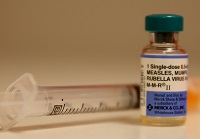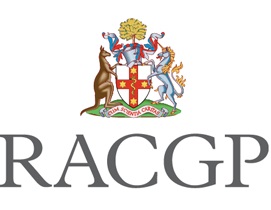Autism & ImmunisationHow do we know? A number of high quality studies have compared the health of large numbers of vaccinated and unvaccinated children over many years. The largest study included 537,303 children born in Denmark and found that unvaccinated children were just as likely to develop autism as vaccinated children. When the results of this study were combined with the results of nine other studies to include medical information from nearly 1.5 million children living all around the world, researchers were able to confirm that vaccination could not be causing autism. Then, what causes autism? It is not known exactly why some children develop autism. The idea that vaccination caused autism was attractive to some people who wanted to find a clear cause. However, this idea arose from a few studies that were badly conducted and have since been proven wrong. Current research suggests that autism cannot be explained by a single cause, but is probably due to a combination of developmental, genetic and environmental factors. What about autism? Many large studies have found vaccines do not cause autism. If you would like more information, you can call the Immunise Australia Information Line on 1800 671 811. So, where did the misunderstanding come from?  In 1998, a research group in the UK, led by Andrew Wakefield, suggested that some children who had received measles-mumps- -rubella (MMR) vaccine went on to develop bowel disease and developmental disorders such as autism. The results of the research, which had included only twelve children, were published in a respected medical journal. However, the authors retracted their claim that there was any association between vaccination and autism in 2004. In 1998, a research group in the UK, led by Andrew Wakefield, suggested that some children who had received measles-mumps- -rubella (MMR) vaccine went on to develop bowel disease and developmental disorders such as autism. The results of the research, which had included only twelve children, were published in a respected medical journal. However, the authors retracted their claim that there was any association between vaccination and autism in 2004.
The paper was withdrawn from the journal in 2010 after the General Medical Council found that results reported in the paper had "proven to be false". An apology was printed in the journal. After it became clear that MMR vaccine was not the problem, some people suggested a preservative sometimes used in vaccines that are packaged in multi-dose containers might be linked to autism. The preservative, called thiomersal, is a salt that contains a tiny amount of mercury. The mercury salt in thiomersal is not the kind of mercury compound that accumulates in the human body. None of the vaccines normally given to children in Australia are packaged in multi-dose containers so none of them contain thiomersal or any other form of mercury. Separate vaccines for measles and mumps are not available in Australia. The idea of using separate measles, mumps and rubella vaccines was first suggested by Wakefield. A study of all of the children born in Yokohama, Japan, found that children who received separate vaccines are no less likely to develop autism than those who receive the combined MMR vaccine. This fast fact sheet has been developed to help doctors and nurses to answer parents' questions about vaccinations by a group of researchers called the SARAH Collaboration. It was written by Nina Berry PhD and Julie Leask PhD from the University of Sydney, Margie Danchin PhD from the University of Melbourne, Tom Snelling PhD from the Telethon Kids Institute, and Kristine Macartney MD and Melina Georgousakis PhD from NCIRS. SARAH is funded by the Australian Government Department of Health. Source: www.immunise.health.gov.au |
|
Covid-19 Notices
Flu Shot Emergency Numbers After Hours 13 74 25 Contact Hours |
Doctors
Appointments Fees About Map Links |
Immunisation
Feedback Local Pharmacies Resources Home |

| 
|

| 
| 
| 
| 
|
|---|---|---|---|---|

| 
| 
| 
| 
|



